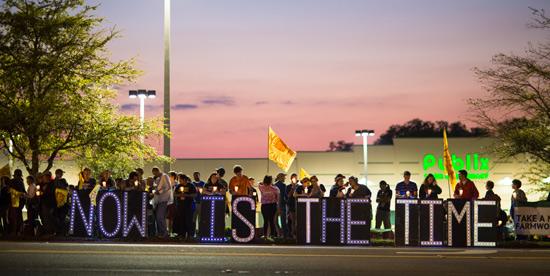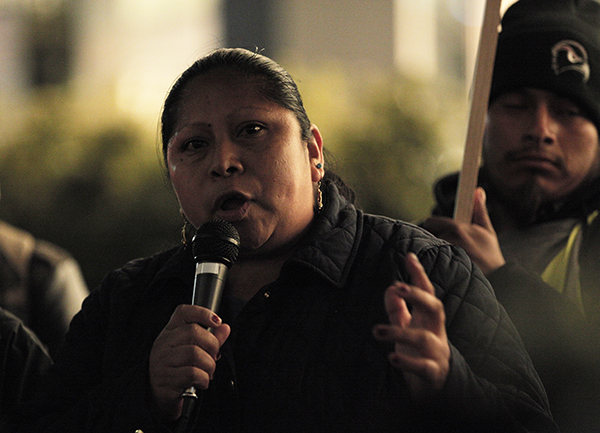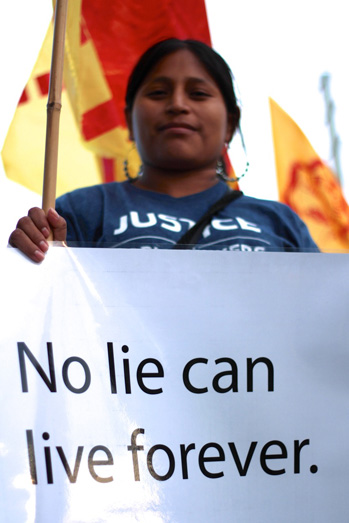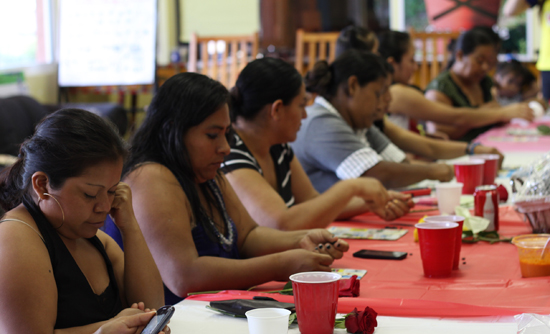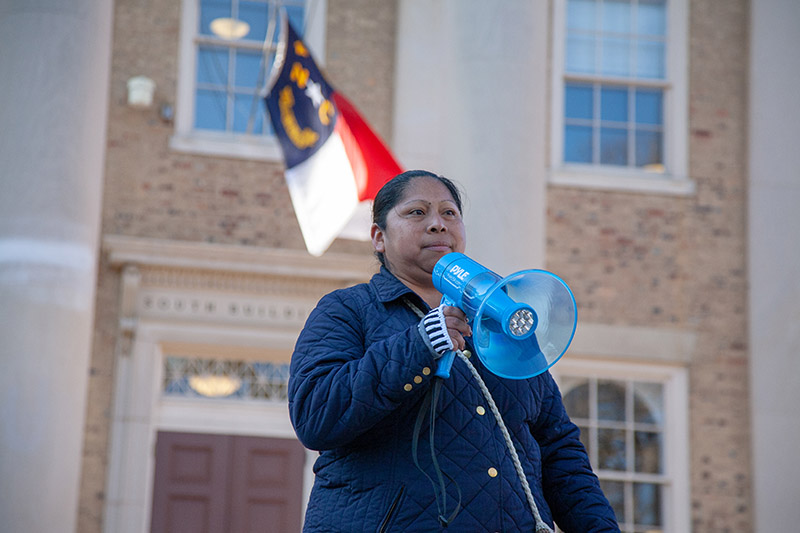
Lupe Gonzalo
Last Friday, March 8, women and allies commemorated International Women’s Day, a day that honors the March 8, 1917 march of over 100,000 women workers through the streets of St. Petersburg, calling for the overthrow of the czar. Four days later, the czar was gone. From the outset, International Women’s Day was International Women Workers’ Day. The women farmworkers of Immokalee, Florida, like women farmworkers around the world, know this lesson in their bodies as well as their days and nights, and they teach it every single day. This year, as in years past, they are taking that lesson to school, to universities in North Carolina, Ohio, Michigan and Florida, to be exact. Their message is clear and direct. As Lupe Gonzalo, a farmworker organizer leader of the Coalition of Immokalee Workers, told the assembled at University of North Carolina Chapel Hill: “You cannot claim light and liberty while doing business with companies like Wendy’s… This message is for all of the university administrations: We are tired of excuses! We want justice!” We are tired of excuses! We want justice!
For over twenty years, the Coalition of Immokalee Workers has been organizing to create justice in the fields. They have fought against slavery in the fields, and in so doing established anti-slavery and anti-trafficking networks. They have fought against sexual violence and exploitation in the fields and developed some of the most stringent and effectively monitored codes of conduct in the agricultural industry anywhere. The Coalition began its Campaign for Fair Food in 2001, and in 2011, signed its first formal Fair Food Program agreement, this with the Florida Tomato Growers Exchange. That first agreement included “a strict code of conduct, a cooperative complaint resolution system, a participatory health and safety program, and a worker-to-worker education process.” From the outset to today, the Coalition of Immokalee Workers has insisted that workers have to be in charge of the pursuit of dignity and justice. At the core of that insistence has been the women members of the Coalition of Immokalee Workers who, from the outset, argued that every so-called watershed moment had to be understood as “a movement, not a moment”. From their campaigns to bring growers, grocery chains and restaurant chains to the table, the women of the Coalition of Immokalee Workers has insisted that labor rights are women’s rights are women workers’ rights. The companies that have heard, or were forced to hear, that argument include Yum! Brands aka Taco Bell, McDonald’s , Burger King, Whole Foods, Subway, Bon Appétit, Compass, Aramark, Sodexo, Trader Joe’s, Chipotle, Walmart, Fresh Market, and Ahold USA.
For the last few years, the Coalition of Immokalee Workers has been pushing Wendy’s to come to the table. Their campaign, Boot the Braids, has called on universities and colleges to join the boycott of Wendy’s. This month’s iteration of that campaign is the 4 for Fair Food Bus Tour, targeting universities in four states. Thus far, the University of Michigan announced that Wendy’s will not return to campus until it signs and abides by the Fair Food Program standards.From the beginning of the Wendy’s campaign, and before and beyond, women farmworker organizer leaders have insisted that every part of the labor system must engage with the dignity of women workers as part of the struggle for dignity for all workers and as part of the struggle for dignity for women workers in particular. This is what the Coalition of Immokalee Workers means when they discuss worker-driven social responsibility linked to worker-to-worker popular education, research and leadership formation. Again, you cannot claim light and liberty while doing business with companies like Wendy’s. That message is for everyone: We are tired of excuses! We want justice! NOW is the time!
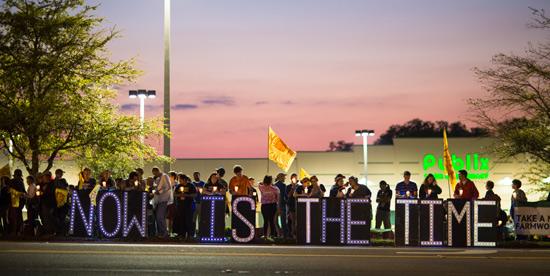
(Photo Credit 1: Coalition of Immokalee Workers) (Photo Credit 2: Forest Woodward / Facebook)
